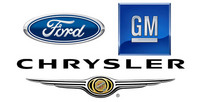Bob Corker Junior Senator Takes Wheel in U.S Auto Aid Debate
WASHINGTON, Dec 11, 2008; Karey Wutkowski writing for Reuters reported that Bob Corker, a first-term Republican senator and millionaire real estate developer, sought to broker one of the biggest deals of his life on Thursday -- a $14 billion bailout for Detroit automakers with tough enough conditions to win more Republican support.
The junior Tennessee senator's proposal to amend a bill passed by the U.S. House of Representatives won the immediate attention of conservative Republicans such as Minority Leader Mitch McConnell of Tennessee.
McConnell and Louisiana Sen. David Vitter had complained the existing bill didn't demand enough from automakers in exchange for taxpayer money.
The House version of the bill to throw General Motors Corp and Chrysler a lifeline to pay their bills over the next few weeks is as complicated as a "three-humped camel," Corker said in a Southern drawl on the Senate floor.
Corker, 56, said he could not support the existing auto bailout package cobbled together by Democrats and the White House because it failed to address "the unworkable capital and labor structures that cripple these companies."
The founder of a successful construction company and a real estate developer, Corker urged senators on Thursday morning to adopt what he called a "simple" and business-oriented solution.
He proposed setting a strict March 15 deadline for GM and Chrysler to cut their debt, persuade bondholders to accept an equity swap and start labor renegotiations to compete with foreign automakers' work rules. While several Republicans warmly greeted the idea, some Democrats viewed the proposal as demanding too much from the United Auto Workers union.
By late afternoon, Corker's idea had picked up momentum and McConnell dispatched Corker into negotiations with Senate Democrats to try and reach a compromise. Democratic Leader Harry Reid of Nevada said if the negotiations were successful, the auto bill would "overwhelmingly" pass the Senate.
NEEDING 60 VOTES
The auto bailout bill needs 60 votes to advance in the Senate, where Democrats hold 50 seats, meaning that Senate Republicans could block the measure.
On Thursday, Corker said he had just spoken with GM's chief operating officer, who agreed that the senator's proposal would work by using a "government stick" to force the autoworkers to cut their debt and get workers' pay on parity with foreign competitors.
"Let's pass a bill that causes these companies to be strong, gives them the money to breathe," Corker said.
The approach would impose similar types of conditions on GM and Chrysler that a bankruptcy court judge might require but without the "stigma" and complicated problems that accompany a formal bankruptcy, Corker said.
A member of the Senate Banking Committee, Corker asked tough questions of the Detroit chief executives at a hearing last week, chiding them for failing to evolve a dinosaur industry and pushing for Chrysler and GM to reopen merger talks. At one point, Corker said at the hearing, "No thinking person thinks that all three (automakers) can survive."
He also described phone conversations he held with Detroit auto executives, labor union officials and with the board of Chrysler's private equity firm owner, Cerberus Capital Management.
Tennessee, the senator's home state, includes a GM plant, a Nissan Motor Co plant and is getting a plant from Volkswagen, Europe's largest carmaker, Corker said.
Ford, the third big Detroit carmaker, is asking for a federal line of credit to be tapped if its finances worsen more than expected in 2009.
Corker, a former mayor of Chattanooga and former Tennessee commissioner of finance, specifically proposed the following changes to the auto rescue package:
* Immediately provide federal funds requested by GM and Chrysler to keep them out of bankruptcy, but with additional "covenants."
* Require GM and Chrysler to reduce their outstanding unsecured debt by at least two-thirds by March 15, 2009, or be forced to file for Chapter 11 bankruptcy at that time.
* Require GM and Chrysler to force their bondholders to accept equity for debt.
* Require UAW to take action to reduce labor costs only after the UAW sees the bondholders take a haircut.
* Require UAW to accept equity for half of the payments owed by automakers to the UAW-aligned trust fund known as a voluntary employee beneficiary association (VEBA).
* Require the "all-in" labor costs and work rules of the Detroit Three be immediately brought on par with foreign carmakers such as Nissan, Toyota and Honda.
* End the union's jobs bank that requires payments to some autoworkers up to four years after their jobs ended. (Reporting by Karey Wutkowski, editing by Matthew Lewis and Philip Barbara)



